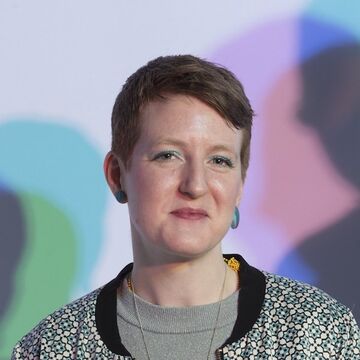

Jessica Charlesworth
Lecturer
Contact
Bio
BA, 2002, Manchester Metropolitan University, Manchester, UK; MA, 2007, Royal College of Art, London, UK Exhibitions: Venice Architecture Biennial, Italy; Walker Art Center, Minneapolis; Philadelphia Museum of Art, Pennsylvania; Chicago Cultural Center, Chicago; Piknic, South Korea; Media Majlis, Qatar; Public Works Gallery, Chicago; Museu de Arte, Arquitetura e Tecnologia, Lisbon; Science Gallery Dublin; Istanbul Design Biennial; Museum of Contemporary Art, Chicago Collections: DePaul Art Museum, MAK Vienna Awards: NEW INC Year 9 Membership, New Museum, New York; USAGraham Foundation for the Arts; Canada Council for the Arts; 2023 Artist-In-Residence Project Space at Headlands Center for the Arts Bibliography: "Biennale Architettura 2021 – Parsons & Charlesworth," BiennaleChannel; "Italia: viaggio nella bellezza – Ricostruire insieme," RAI Cultura TV; DAMN°Magazine: Take Your Time, No.79 Issue; "Venice Architecture Biennale 2021 Review," The Guardian Publications: "The Last Object On Earth," Mapping The Horizon, New Suns, Issue 1, United States Artists; Tomorrow Anew, 2020; "Memories from the Year 2030: Contact Clubs," The Gradient, Walker Art Center, 2020; "From the Bauhaus to Speculative Design: A Lineage of Socially Motivated Practice," Bauhaus Futures, MIT Press, 2019
Personal Statement
Jessica Charlesworth (she/her/they) is a British/Canadian transdisciplinary artist, designer, and educator. She co-founded the studio Parsons and Charlesworth in 2014 with Tim Parsons upon relocating to Chicago from the UK. A master's graduate of the Design Interactions course at the Royal College of Art in London, Jessica explores the speculative impacts of emerging technologies on future society and culture. Her artistic journey is anchored in extensive research and critical inquiry, utilizing art and design as powerful tools to navigate the intricate landscapes of social, ecological, and technological challenges. With over 15 years of teaching experience, Jessica has created futures-oriented classes, mentored students, lectured and independently organized workshops at universities and education institutions including Harvard Business School, University of Pennsylvania, California College of the Arts, University of Michigan, ArtCenter College of Design, Central Saint Martins, Glasgow School of Art, Royal College of Art, Bath School of Art & Design, St. Joost School of Art & Design, Netherlands and Moholy Nagy University, Budapest. She is a part-time faculty member in Designed Objects at the School of the Art Institute of Chicago. She has collaborated with artists, futurists, scientists, and think tanks including Foresight (UK) and the Institute for the Future (US).
Parsons & Charlesworth is an art and design studio that develops tangible worlds as discursive tools for critically appraising urgent issues. Co-founded by Jessica Charlesworth and Tim Parsons, the studio’s investigative, research-driven, speculative approach uses installation, sculpture, designed objects, writing, photography, and digital media to explore key social, ecological, and technological challenges of our time. Together, they develop new ways of understanding and interacting with alternative futures, addressing concerns such as the ecological crisis and the future of work through their collaborative world-building projects. Their current project, Multispecies Inc., involves field research and in-depth conversations with specialists in biology, climate science, and climate modeling. This endeavor manifests as a series of narratives and objects around a fictional group of ecologists striving to cohabit with other species using advanced technologies. They are recent NEW INC members on the Creative Science Track as part of the New Museum mentorship incubator program and both teach at SAIC.


